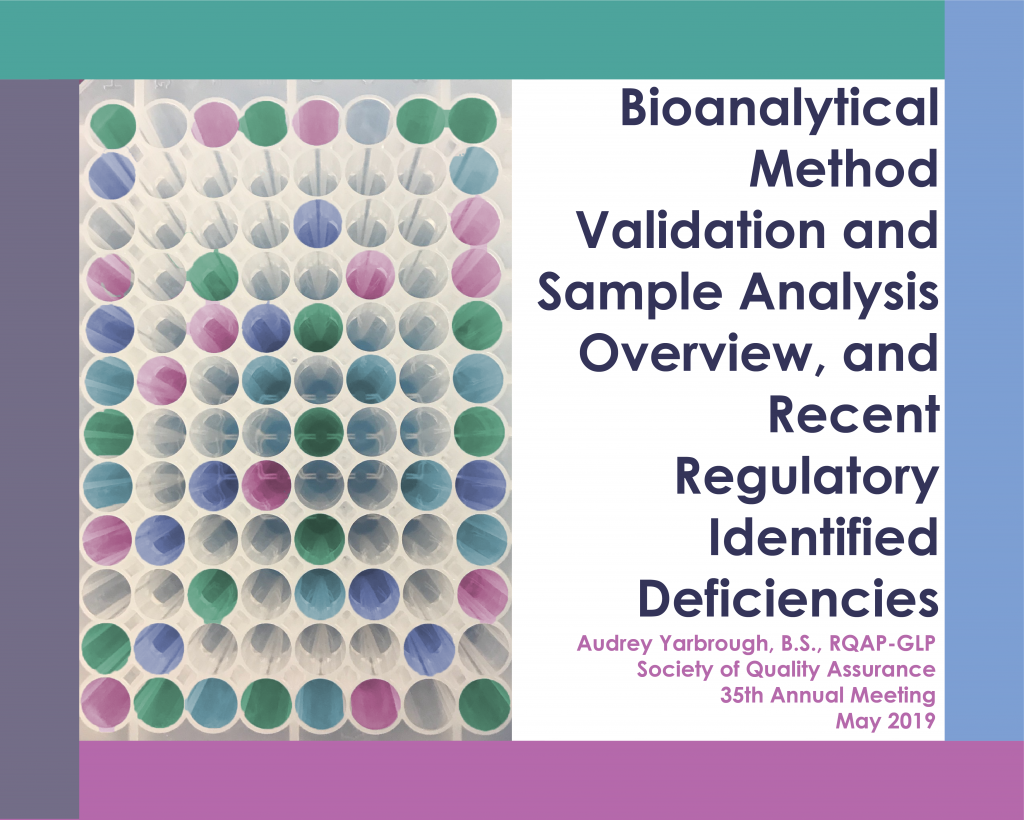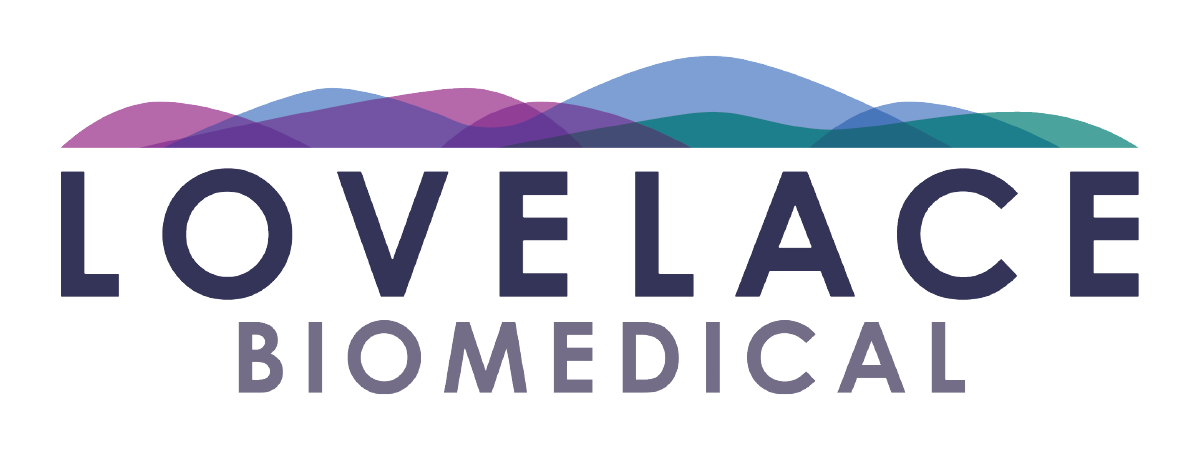
Audrey will be attending and presenting at the 35th Annual Society of Quality Assurance Conference in Atlanta, GA April 28 – May 03. Read below as she answers questions to her job, her experience, the conference, and all things quality assurance.
Tell me about the Importance of this event, and why is it important to Lovelace and yourself?
Quality assurance is a big/important part of the work we do within the industry, but in particular to bioanalytical method validations and bioanalysis, and dose formulation analysis. Analyzing the dose formulation concentrations, is a requirement from the FDA.
What are you talking about in regards to that, in your presentation?
The focus on my presentation is giving an overview of the definitions and terminologies, which are meaningful as an auditor. Providing basic method validation terms is important to data interpretation, and how the validated method should apply to the sample analysis is the second part. I’m also talking about recently identified regulatory deficiencies, which I thought were important since they’re noted by the FDA, it’s important that QA knows what those items are to help identify the same deficiencies for our own work. Because we need to stay ahead. We need to know how to look for them and recognize them.
How long have you had experience in auditing and in QA?
I’ve been a QA auditor at Lovelace for almost three years and I spend most of my time working with the chemistry team. Prior to being hired at Lovelace, I’ve also had a lot of scientific experience conducting bioanalytical method validation experiments and sample analysis as well as overseeing and participating in the procedures related to nonclinical (GLP) studies. The combination of hands on experience and my experience as an auditor has given me a chance to put the overall aspect of science and compliance together. I hope to share some of this knowledge with other auditors at the conference.
Is there Everyday use for what you are presenting?
Everyday work includes bioanalytical method validations, and we also develop and validate methods for dose formulations. A lot of work goes into the validations because there’s a lot of steps and data created which needs to be compliant with the guidance set forth. Most of what I do day-to-day is included in my presentation.
How important is it to adhere to the FDA’s guidance suggestion?
They expect you to be compliant because it’s driven by good science. If you’re not adhering, you won’t get anywhere. As an auditor it’s well followed within the industry, and we take note of it. Everything done within BIOA is built around the guidance. Dose formulation validations are important to satisfy the analytical requirement from the FDA regulations, 21CFR. Although this type of validation is not included in the method validation guidance, the instrumentation and methodologies are similar.
What are the challenges faced with it?
It’s complicated in auditing the data because there’s a lot of expectation in the guidance in order to do the testing. It’s a lot of work which is specific to one analyte or drug. Think about all the methods we come across as a CRO, it’s a lot. And they’re very specific. Different animal species and sample types add lots of variables. We have even validated methods for clinical trials, one of which analyzes human breath samples.
At your presentation what are you expecting to accomplish?
I’m hoping to help or inspire the auditors who are new to the industry. Providing the information in the deficiencies given by the FDA will be helpful to both new and seasoned auditors. I also want to share auditing knowledge which you may not be aware of, unless you had industry experience already.
Any excitement and things to look forward to?
I’m looking forward to conversations with other auditors. That’s what it’s all about. Sharing ideas, examples and knowledge to bring back. The FDA will be there to learn from as well.

